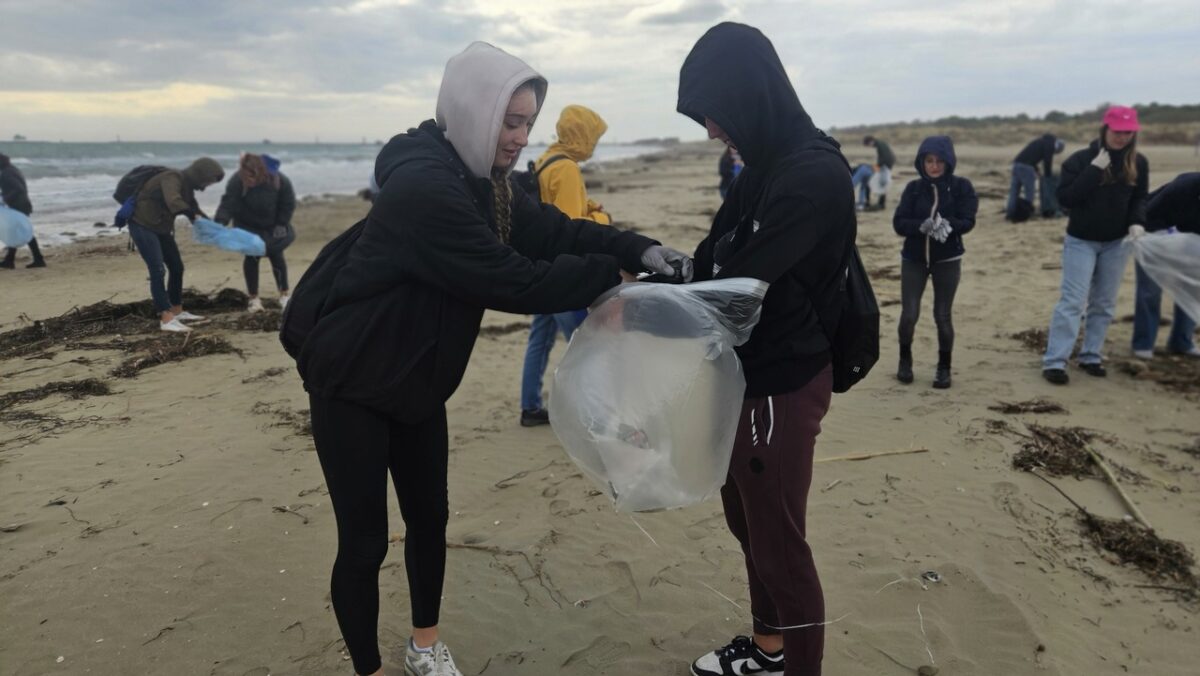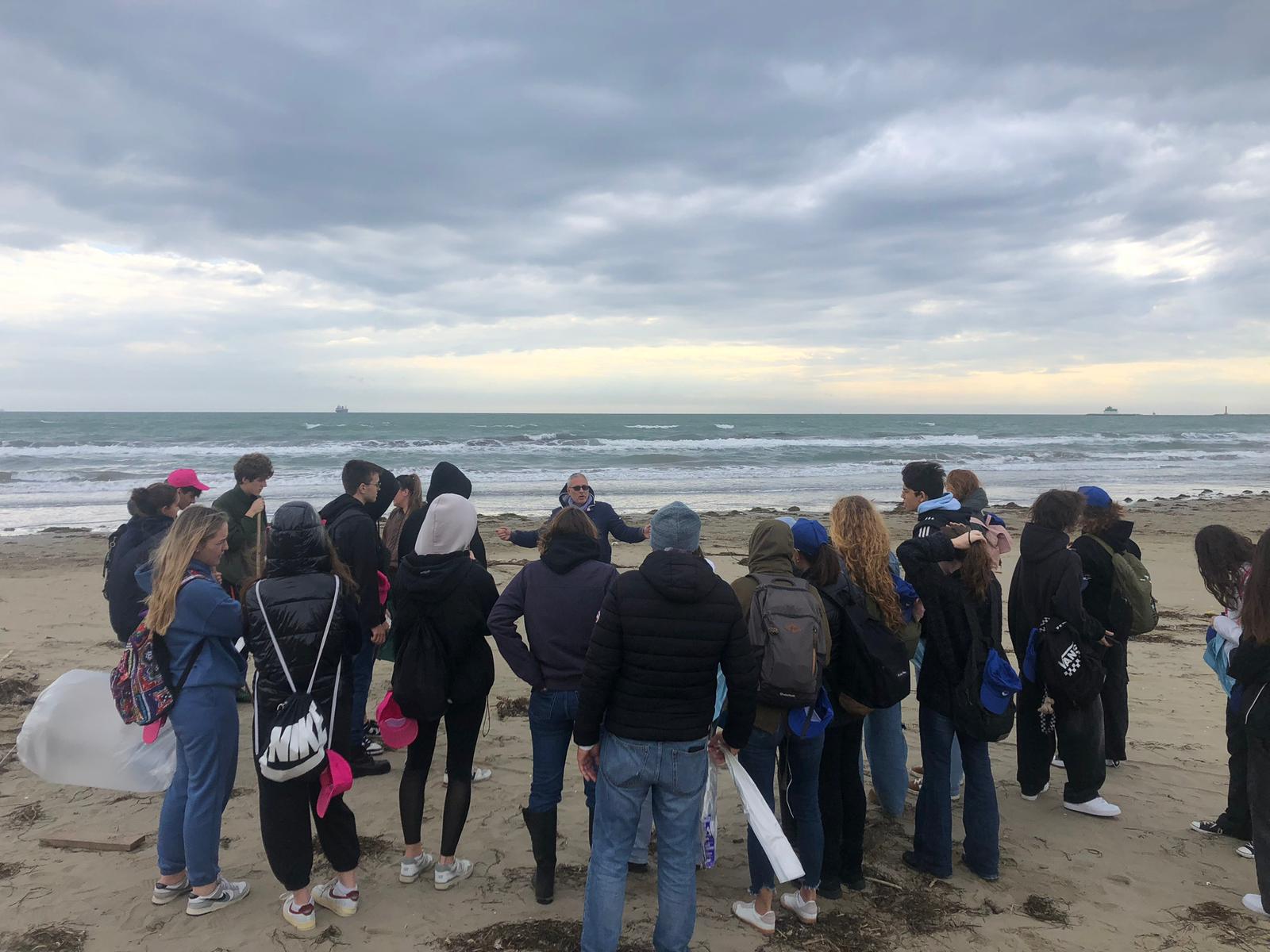The Marco Polo Institute – Classical, Artistic, and Musical High School of Venice is a beneficiary of the European Interreg Italy-Croatia ML-FREE project, titled “Marine Litter-Free Adriatic Sea Education for Active Youth Participation”, co-funded by the European Union.
The project aims to contribute to the preservation of the Adriatic Sea through the development and implementation of a cross-border educational program for young people on marine litter and its prevention. The program is based on participatory learning methods and service learning (SL). Other partners involved in this initiative include the School of Economics and Administration in Split and the Dalmation association SUNCE – “Association for Nature, Environment and Sustainable Development.”
The project includes a variety of activities that actively engage students, teachers, and administrative staff to promote greater knowledge and awareness of marine litter management—particularly plastic waste—for the improved protection of the Adriatic Sea.
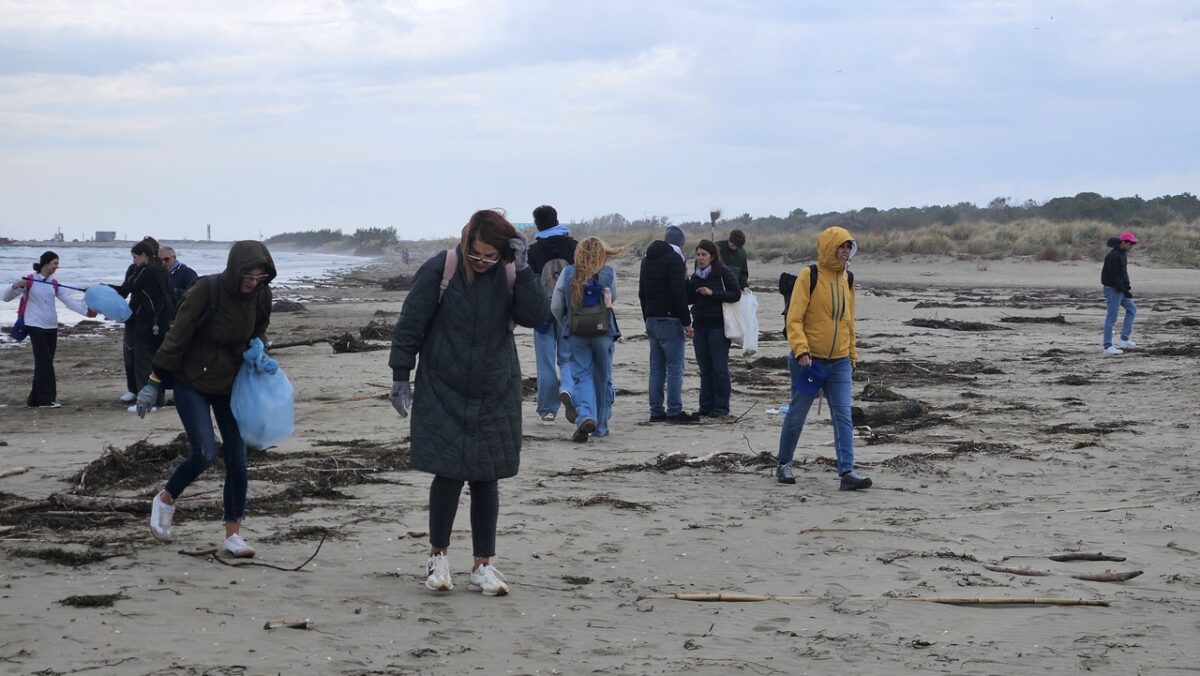
As part of the initiative, last October, the Marco Polo High School hosted students from the School of Economics and Administration in Split, who participated in educational, awareness, and cooperation activities organized by the Venetian school to combat Adriatic Sea pollution. The goal was to acquire and share best practices to promote a sustainable marine environment.
Venice Lagoon Plastic Free (VLPF) was invited to enrich the project’s scope by organizing a practical citizen science training day at the WWF Oasis of Alberoni Beach (Venice). Guided by VLPF, the students experienced fieldwork as operators, participating in marine litter monitoring and clean-up activities on a section of the beach, all under VLPF’s supervision.
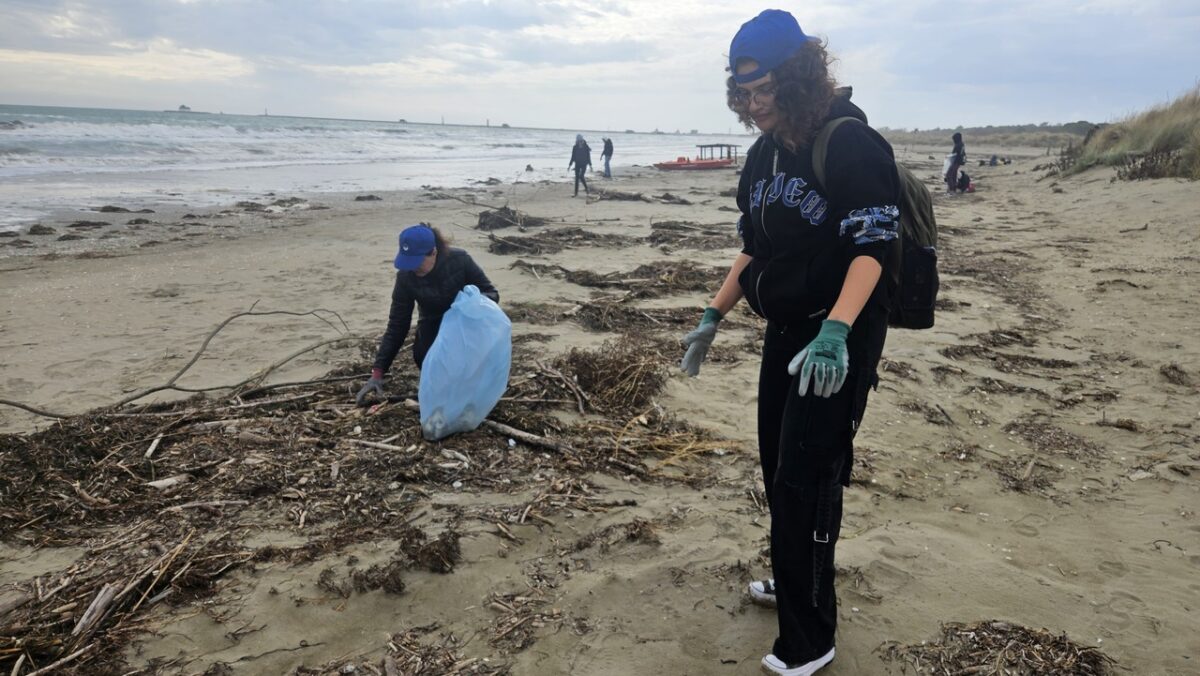
The collected data will later be shared and standardized according to EMODnet Chemistry protocols and incorporated into the European database.
During the clean-up phase, the app developed by VLPF within the framework of the Horizon Europe SeaClear 2.0 project, supported by the software company INFORDATA, was used and further tested. In particular, VLPF finalized the testing of gamification features and the plastic footprint computation functionality.
Students and teachers, divided into two teams—“Pink Panther” and “Blue Lagoon”—participated in a contest to collect as much beach litter as possible within a one-hour time limit.
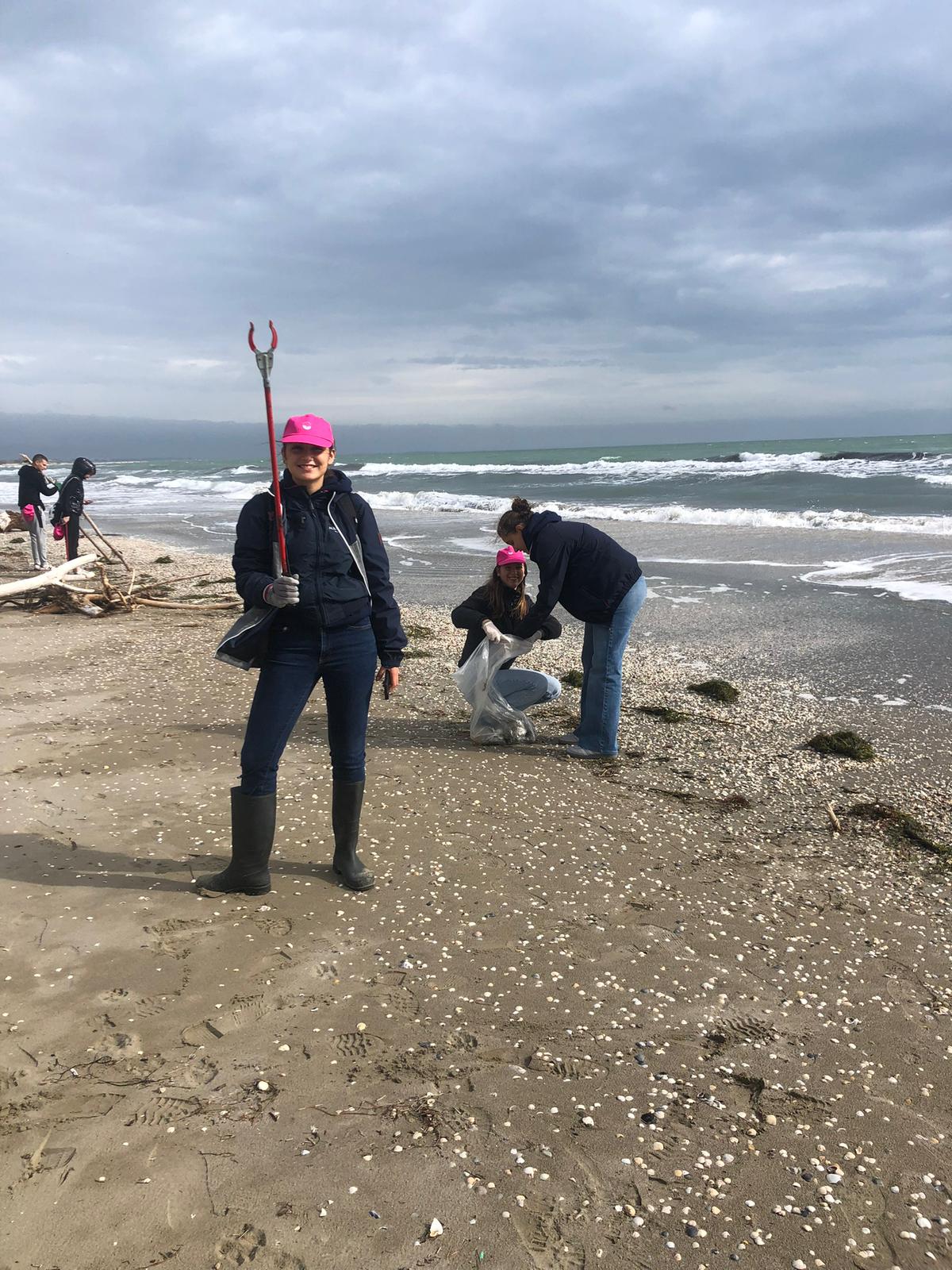
At the end of the activity, the two competing teams had gathered nearly 20 kilograms of waste, most of which consisted of small plastic items.
VLPF firmly believes that raising awareness and educating people about conscious behaviors to reduce marine litter are among the most effective tools for protecting marine ecosystems. This belief has been reinforced through the collaboration with the Marco Polo Institute in Venice.
